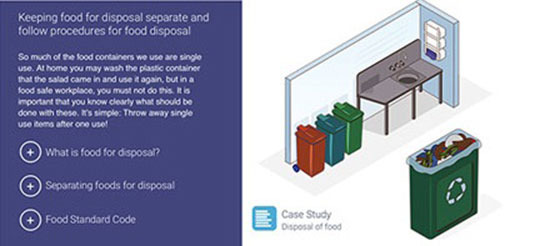
Food safety for care workers
Elderly clients are more vulnerable to food related illness, due to weaker immune systems. As a care worker it is your responsibility to ensure that you understand the causes of food related illness and the ways in which you can control the spread of bacteria.
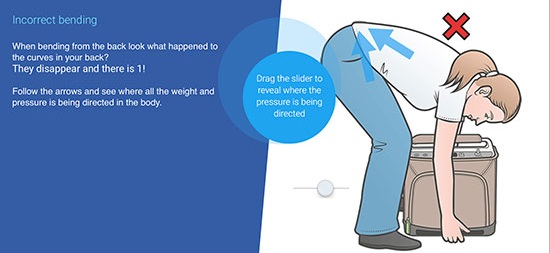
Manual handling for care workers
Manual handling in a health setting can cover a range of activities.
As a care worker you need to be skilled in manual handling of people unaided and also using appropriate equipment. Incorrect manual handling techniques can lead to serious injury. This award winning course covers your workplace obligations, common manual handling tasks, risk factors, assessment of risk and control measures. Safety in the workplace is everyone’s responsibility and this course ensures you have a basic understanding to ensure the safety of yourself, your colleagues and your clients.
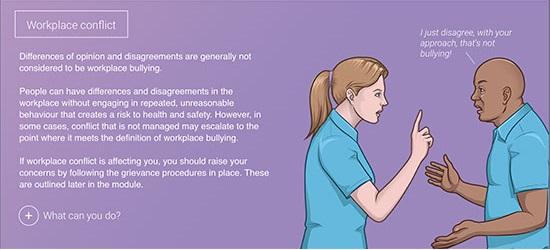
Bullying & harassment for care workers
In this module, we will discuss the responsibilities of you and your employer in providing a workplace that is free of bullying, harassment and discrimination. We will look at what constitutes discrimination and what does not, your expected behaviour in the workplace, what workplace bullying is and the laws around sexual harassment. We will also discuss the procedure for reporting any incidents.
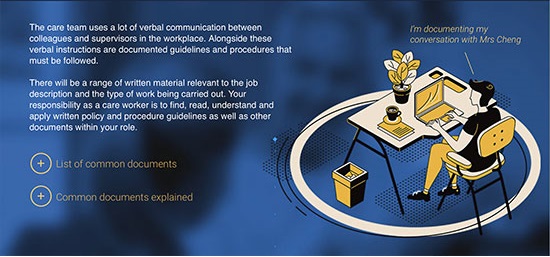
Documentation for care workers
As a care worker you will be required to document your client’s progress and complete a number of charts such as medication charts, food charts, pain charts and sleep charts. It is your responsibility to document these concisely and using language that is factual, using industry standard abbreviations and writing styles. Your notes are a legal document that may be used in a court of law, so it is imperative that you follow the guidelines in this module. This module is part of an award winning suite of products designed to keep your workplace safe.
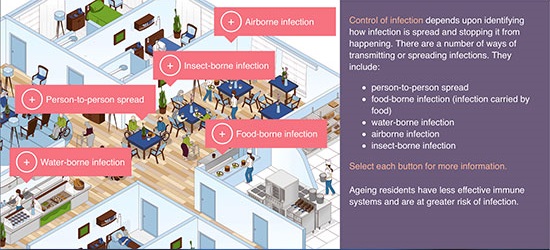
Infection control for heathcare workers
Working in any direct care environment brings staff and clients in contact with one of the most infectious substances. In this course we will outline sources of infection and apply industry accepted practice to minimise risk of infection to workers, clients and others. As a healthcare worker, you have a responsibility not only to protect yourself from infection, but all the clients in your care.
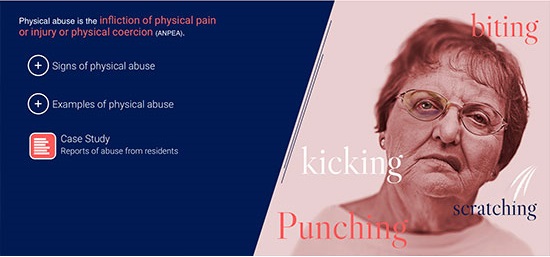
Elder abuse
No older person should be subjected to any form of abuse, often referred to as elder abuse. This award-winning course looks at the various forms of elder abuse including physical, psychological, financial, sexual and the compulsory reporting requirements under the Aged Care Act. Age care facilities must ensure staff are trained in recognising the signs of abuse and ensuring the reporting is carried out using the systems and protocols in place.
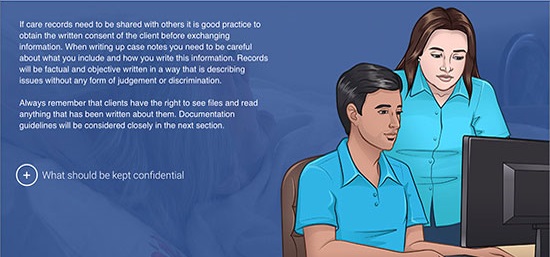
Privacy and confidentiality for care workers
In this course you will learn the difference between privacy and confidentiality and what it means for you as a healthcare worker. What information that you receive from your client can be shared and with whom? If you have been given confidential information, there may be some legal exceptions where confidentiality is not possible. What ere these exceptions? Who should you discuss this with and what are your obligations? These are some of the topics covered in this award winning course that every healthcare worker should be familiar with.
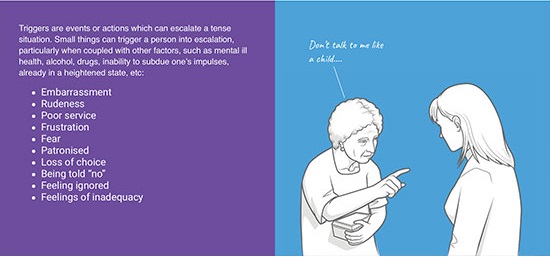
Positive behaviour support
There will be times when you, as a carer, will experience challenging behaviour. Positive behaviour support is an evidence based approach with a primary goal of helping people to increase their quality of life. Often the behaviour is a message from clients that something is wrong or missing and they need help to make it better. In this training module we look at how we determine the severity of the behaviour and ways in which we can manage the behaviour using the least restrictive method to the client’s personal freedom.
Our growing list of aged care refresher modules
Here is a complete list of our current aged care refresher modules.
Please let us know if you are looking for a particular topic that is not listed below.
General compliance series
- Elder Abuse in aged care
- Manual handling for care workers
- Infection control for care workers
- Food safety for care workers
- Documentation for care workers
- Privacy and confidentiality
- Bullying, harassment & discrimination for care workers
- Potentially aggressive clients and positive behaviour support strategies
Disability series
- Introduction to the disability sector – NDIS and NDSS
- Empower people with a disability
- Contemporary practice in the disability
Epilepsy series
- Introduction to epilepsy
- Seizure classification
- Seizure management and response
Dementia series
- Understanding the brain and the pathology of dementia
- The progression of dementia
- Person-centered dementia care
- Activities for people with dementia
- Caring for the carer
- Legal perspectives on dementia care
- Communicating with people with dementia
- Assisting people with dementia with ADLs
- Responding to behaviours of concern
Supporting Independence series
- Supporting spirituality & providing culturally appropriate care
- Promoting independence
- Social, emotional & psychological well-being
- Expressions of identity & sexuality
